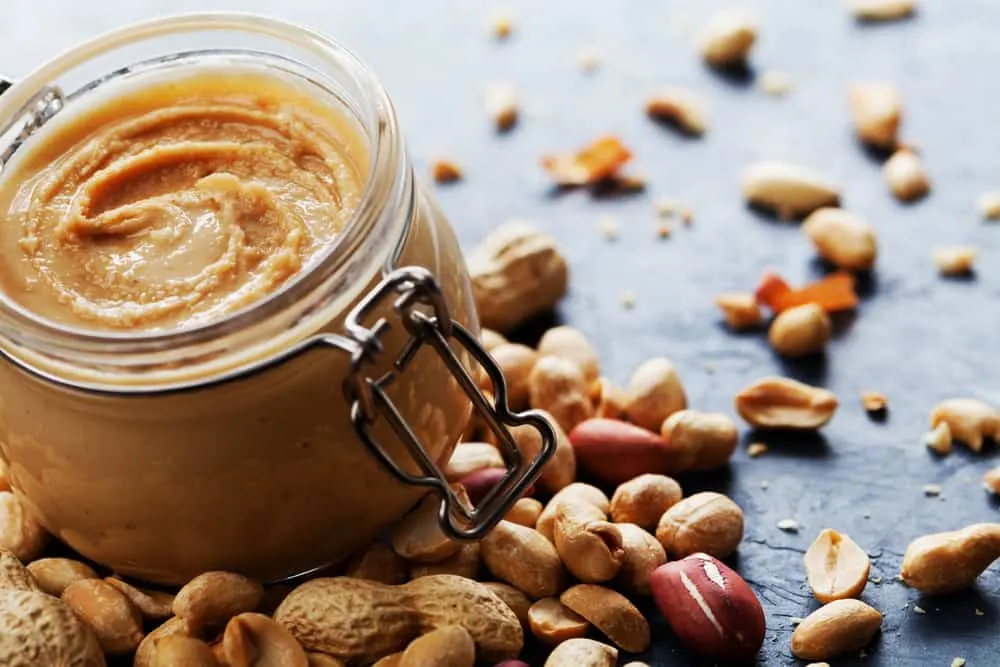You went off to the grocery to grab your favorite spread, the ever-famous peanut butter. Then you suddenly thought, how can you store peanut butter so that it won’t easily get spoiled?
Though, peanut butter does have a long shelf life, does it go bad? This article will discuss the following questions regarding peanut butter:
- how long does it last?
- how would you know if it has gone spoiled?
- how can you store it to extend its shelf life?
- and is it good to be refrigerated?
Peanut butter has been an all-time favorite spread both by adults and kids. Its creamy texture and delightful taste make it a delectable complement to any kind of bread and even an added flavor to savory dishes.
It is also the best way to consume protein because of its nutritious ingredient. A healthy product combined with its cheap price, one cannot resist this yummy spread.
Peanut butter lover as you are, you wish to enjoy your purchased spread for a longer time. How would know how long peanut butter lasts?
Most containers of peanut butter show the expiration dates which indicates how long it stays fresh and will be of the best quality. So you will not have a hard time determining how long it is safe to be consumed. Branded peanut butter with clearly mentioned expiration dates can be purchased or ordered online in Sri Lanka at www.onlinekade.lk.
These dates, commonly known as best-by dates, are sometimes not exact which means that the peanut butter is still safe to be consumed even a little beyond such dates.
As long as it still tastes better, you’re still safe. But others don’t indicate the expiration date so it would be hard to estimate how long it will be safe to consume the peanut butter.
According to Healthline.com, peanut butter is high in fat and has a low moisture content, so it is less prone to bacterial growth. Thus, it has a long shelf life.
Others also add stabilizers like palm oil, hydrogenated oils, and other preservatives such as sodium benzoate to extend the shelf life of the product (foodnetwork.com). Stabilizers are also added to help prevent oil separation and improve texture while preservatives help to avoid the growth of microbes.
Due to these add-ons, peanut butter left unopened will last 6 to 24 months. However, once it is opened, it may last for 2-3 months (Healthline.com). After being opened, it can be stored in a cool dry, and dark cupboard. A room temperature is ideal enough to store peanut butter as its content doesn’t get affected.
Refrigeration for Extending Shelf Life
As per National Peanut Board, commercially processed peanut butter that is already opened and stored in a cool dry place will last for 2 to 3 months. It is then recommended to be refrigerated to extend its shelf life by another 3- 4 months.
However, if you choose a peanut butter that is labeled all-natural, which means it contains only peanut and salt, it has usually a shorter shelf life. This is because they don’t usually contain preservatives and stabilizers.
Thus, its oils easily get foul or sour turning their taste into an unpleasant one. So it is better to consume all-natural peanut butter immediately (maybe a few weeks or a month) while storing it in a cool dry place. If unopened in the fridge it might last a year, but if already opened, it will last 3-4 months.
However, the shelf life of all-natural peanut butter depends on the brand because of some added ingredients so it is important to check the expiration date indicated in the container. Refrigerating peanut butter even after opening will extend its shelf life.

Does the rich and creamy texture of the peanut butter gets affected once refrigerated?
Yes, it may freeze or harden making it difficult to spread on bread or sandwich. Stiffness and stickiness of the texture may also result in its lesser delectable taste because peanut butter is at its best quality once consumed unrefrigerated.
Although refrigerating peanut butter will help the product stay longer for consumption, it may affect the creaminess and its highly pleasant taste. So, if you can consume your peanut butter within a month, you may not refrigerate it.
Just make sure to keep it in a cool dry place. But if you can’t consume it within a month, you may consider refrigerating it. To solve the stiff and sticky texture, you may scoop your desired amount to be consumed and let it warm up a bit at room temperature for easy spreading.
How do you know if the peanut butter is spoilt?
It can be highly determined by its taste and texture. A hard and dry textured peanut butter and a bitter, soapy taste are an indication that your peanut butter has gone bad.
Especially if it turns sour, most likely it is already not safe to be consumed. However, if you see that the peanut butter has oil separation, it cannot be considered an indication that it was spoiled. It is a natural reaction for peanut butter, especially the all-natural ingredients.
Discussing these points, it is clear that storage plays a big factor for peanut butter to stay longer and preserve its taste. It is very important to store it properly. It may not be required to be refrigerated, but it ensures longer shelf life.
If you have a place in your kitchen which is a cool dry and dark place, it is good enough for peanut butter storage.
Once you open the container, it is also important to seal or close it tightly. Air exposure leads to quicker spoilage of your peanut butter as it makes the taste rancid.
The utensils used to dip and scoop a portion of your stored peanut butter also contribute to quick spoilage. It is important to use a clean, unused, and dry spoon to avoid cross-contamination (healthline.com).
So to all peanut butter lovers out there, it is important to be familiar with the proper storage of your favorite spread. This will help you save on the penny you spent as you enjoy this healthy snack partner while preserving its taste longer.






